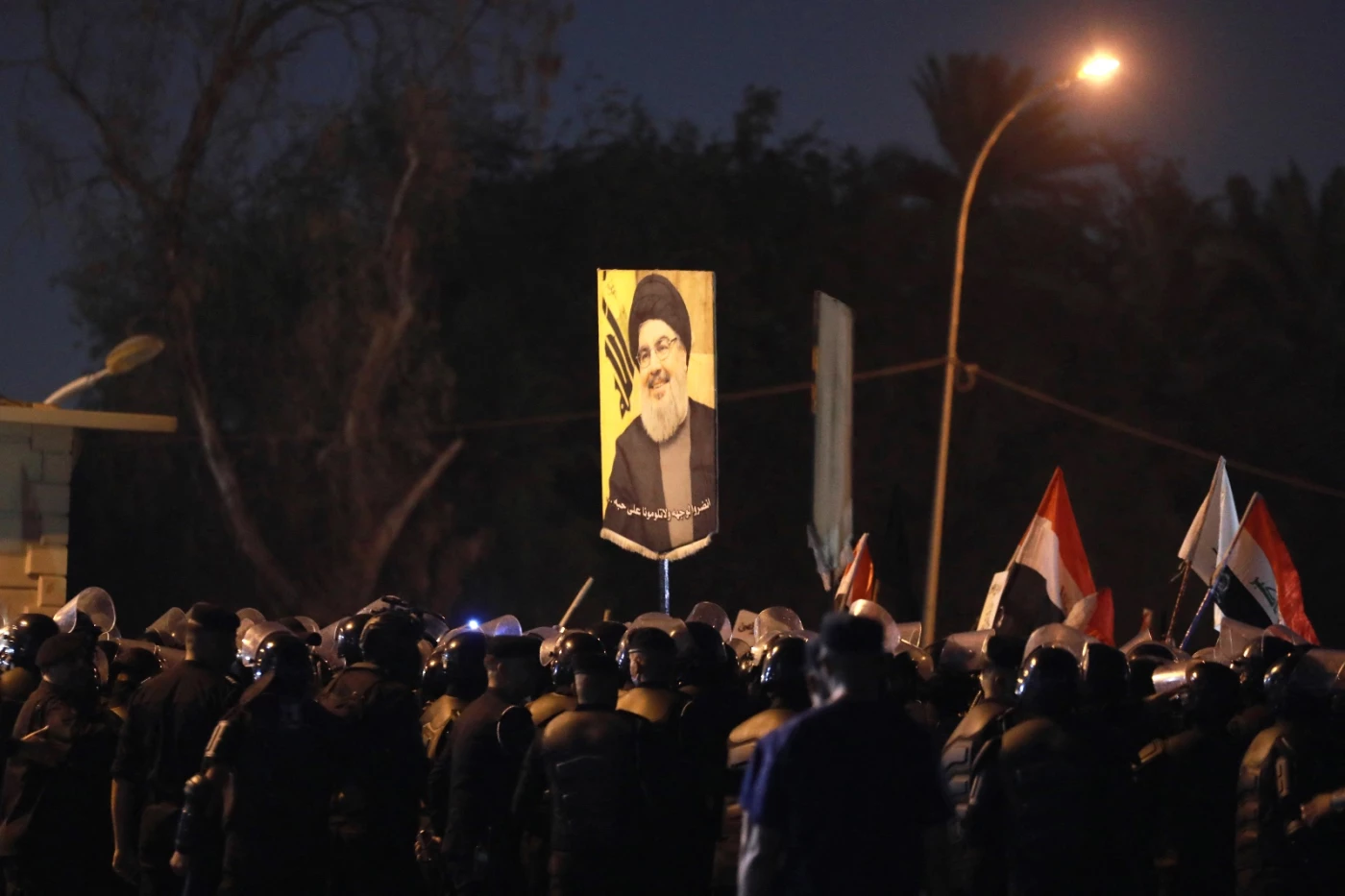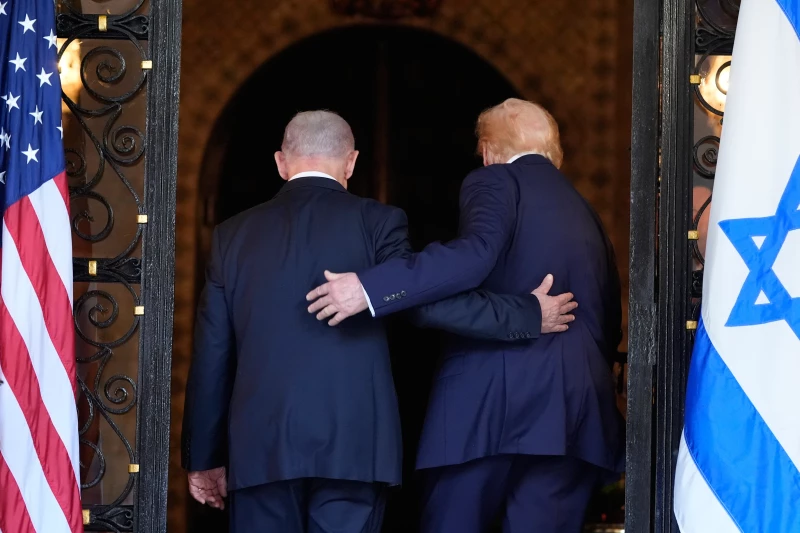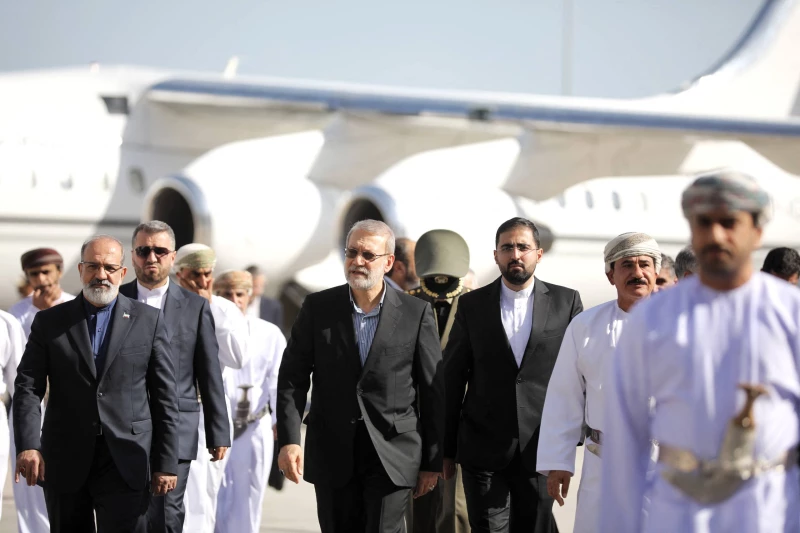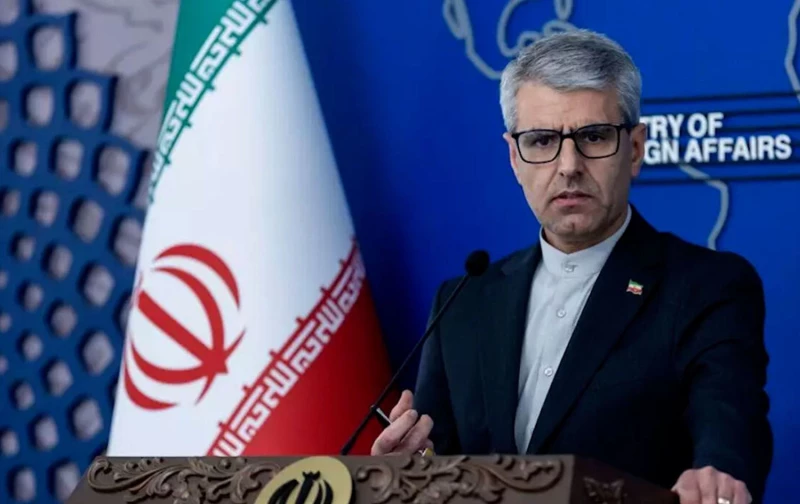ERBIL, Kurdistan Region of Iraq - The killing of Lebanese Hezbollah chief Hassan Nasrallah in Israeli airstrikes over the weekend has triggered an outpour of condolences across the Iraqi political spectrum with Shiite armed groups aligned with the Hezbollah vowing to press on with their support for the Lebanese group and broaden their attacks on Israel.
The Israeli military announced on Saturday that Nasrallah was “eliminated” alongside other Hezbollah commanders in a strike on the group’s central headquarters “which was located underground embedded under a residential building” in the southern suburbs of Beirut.
Hezbollah confirmed his death hours later.
The Iraqi Presidency on Sunday offered condolences for the death of Nasrallah, urging the international community for “immediate” efforts to halt the Israeli aggression in Lebanon and Gaza
In a phone call with Lebanese counterpart Najib Mikati, Iraqi Prime Minister Mohammed Shia’ al-Sudani extended his condolences over the killing of Nasrallah, reiterating Baghdad’s support for Lebanon and stressing the need to coordinate efforts to stop the Israeli aggression
The Iraqi Coordination Framework, the ruling Shiite alliance, held an emergency meeting after the death of the Hezbollah chief, pledging support to Lebanon while lauding the government’s assistance for Lebanese nationals displaced by the recent escalations, including sending tens of tons of humanitarian and medical aid.
Soon after the announcement of Nasrallah’s killing, pro-Iran armed groups poured into the streets of Baghdad protesting his assassination outside Baghdad’s Green Zone, where the US Embassy is located. Riot police dispersed the demonstrators.
Messages of retaliation from Iran-backed groups
Iraqi militia groups, operating under the umbrella of the Islamic Resistance in Iraq, have joined Hezbollah in carrying out strikes on Israel even before the death of Nasrallah. The group has claimed several drone, rocket, and cruise missile attacks on different parts of Israel and has vowed to continue.
Nasrallah’s death “will not deter the mujahideen” from continuing the fight against Israel, said Iraq’s Kataib Hezbollah in a statement. “The resistance front has lost a great and brave leader, in a treacherous operation with the same brutal tools that betrayed the leaders of victory in Iraq.”
Pro-Iran Iraqi parties and armed groups use the term “leaders of victory” to refer to influential Iranian commander Qasem Soleimani and former Kataib Hezbollah leader Abu Mahdi al-Muhandis, who were killed in an American strike outside Baghdad International Airport in 2020.
“However, his loss - like that of all the martyr leaders in the axis of good - will not deter the Mujahideen from continuing on the path of truth and supporting the oppressed. On the contrary, their pure blood will strengthen the momentum of the struggle and bestow greater sanctity upon the fight against the systems of arrogance in the region.”
Harakat al-Nujaba, a Shiite paramilitary group that is part of the Popular Mobilization Forces (PMF), said that one of the key scenarios on the table is attacks on US interests in Iraq and the region.
“The situation in the region has entered a new phase after the assassination of Hezbollah Secretary-General Sayyed Hassan Nasrallah,” Firas al-Yasser, a member of the Political Council of the Harakat al-Nujaba, told The New Region on Saturday, noting that there are several scenarios for a possible response, including “targeting American interests in the region.”
Another possible response, according to al-Yasser, could be Iran's “direct or indirect participation” in the fight against Israel through coordination with the “resistance” groups.
“The leadership of the resistance is studying all available options, and has not yet revealed its full capabilities,” he said. “Iraq is an integral part of the axis of resistance, and expelling the occupier is one of the priorities of the Iraqi resistance.”
“The situation is now open to all possibilities following the assassination [of Nasrallah],” he claimed.
Kataib Sayyid al-Shuhada, another militia group that is also part of the PMF and closely linked to Iran, also vowed to avenge the killing of Nasrallah.
“The assassination of Hassan Nasrallah increases the steadfastness of the resistance,” Kadhim al-Fartousi, the group’s spokesperson, told The New Region, adding that a response from the “resistance axis” is to be expected.
Fartousi on Thursday warned that Iraq would turn into “a war front” against Israel, saying that “supporting the resistance in Lebanon is better than remaining silent.”
Reactions from Kurdish leaders
The Kurdistan Region Presidency in a statement on Sunday expressed “profound concern” over the recent developments in the Middle East, stressing that the escalations pose “a significant risk” to the security and stability of the region.
The statement also offered “heartfelt condolences go out to the families of the fallen.”
Bafel Talabani, Patriotic Union of Kurdistan (PUK) leader, in a post on social media platform X expressed his “deep grief” over the news of “the martyrdom” of the Hezbollah chief.
“We are calling on the international community to assume its legal and humanitarian responsibilities to bring this bloodshed and aggression in Palestine, Lebanon and the region to a halt. We are also calling on all the involved parties to exercise maximum restraint in order to avoid dragging the region into a wider war.”
Who was Nasrallah?
Nasrallah was one of the founding members of Hezbollah, formed in 1982 to fight the Israeli invasion of Lebanon. He became the group’s chief in 1992 after his predecessor Abbas al-Musawi was assassinated in an Israeli strike.
He is the latest Hezbollah senior figure killed in Israeli strikes on Lebanon in recent months. Fuad Shukr, the group’s top military commander was killed in a strike on Beirut in July, while his second-in-command Ibrahim Aqil was killed in Haret Hreik last week. Ibrahim Qubaisi, a commander of the group's missile and rocket units, was killed in a strike on Beirut on Tuesday.
Hezbollah and the Israeli military have been engaged in cross-border exchanges of fire for nearly a year. The Lebanese group initiated strikes on northern Israel a day after October 7.
Violence has significantly escalated between the two sides over the past two weeks, sparked by a major cyberattack involving communication devices of Hezbollah members in Lebanon which killed dozens and injured around 4,000 others.
Over 700 people have been killed in Lebanon and more than 200,000 displaced since Israeli forces began intensifying their attacks on the country on Monday.
Iran’s Foreign Minister on Friday addressed the UN and pointed the finger of blame at the US for assisting Israel militarily, giving them the capability to conduct such strikes.
Almost a year in, over 41,000 people have been killed as a result of the Israeli offensive in Gaza following Hamas’ incursion into Israeli territory on October 7, according to the Palestinian health ministry.
The UN Security Council has adopted several resolutions demanding an immediate ceasefire in Gaza or proposing a ceasefire plan to bring an end to the conflict. The UN Human Rights Council in April passed a resolution calling on states to cease the sale and shipment of weapons to Israel.



 Facebook
Facebook
 LinkedIn
LinkedIn
 Telegram
Telegram
 X
X


